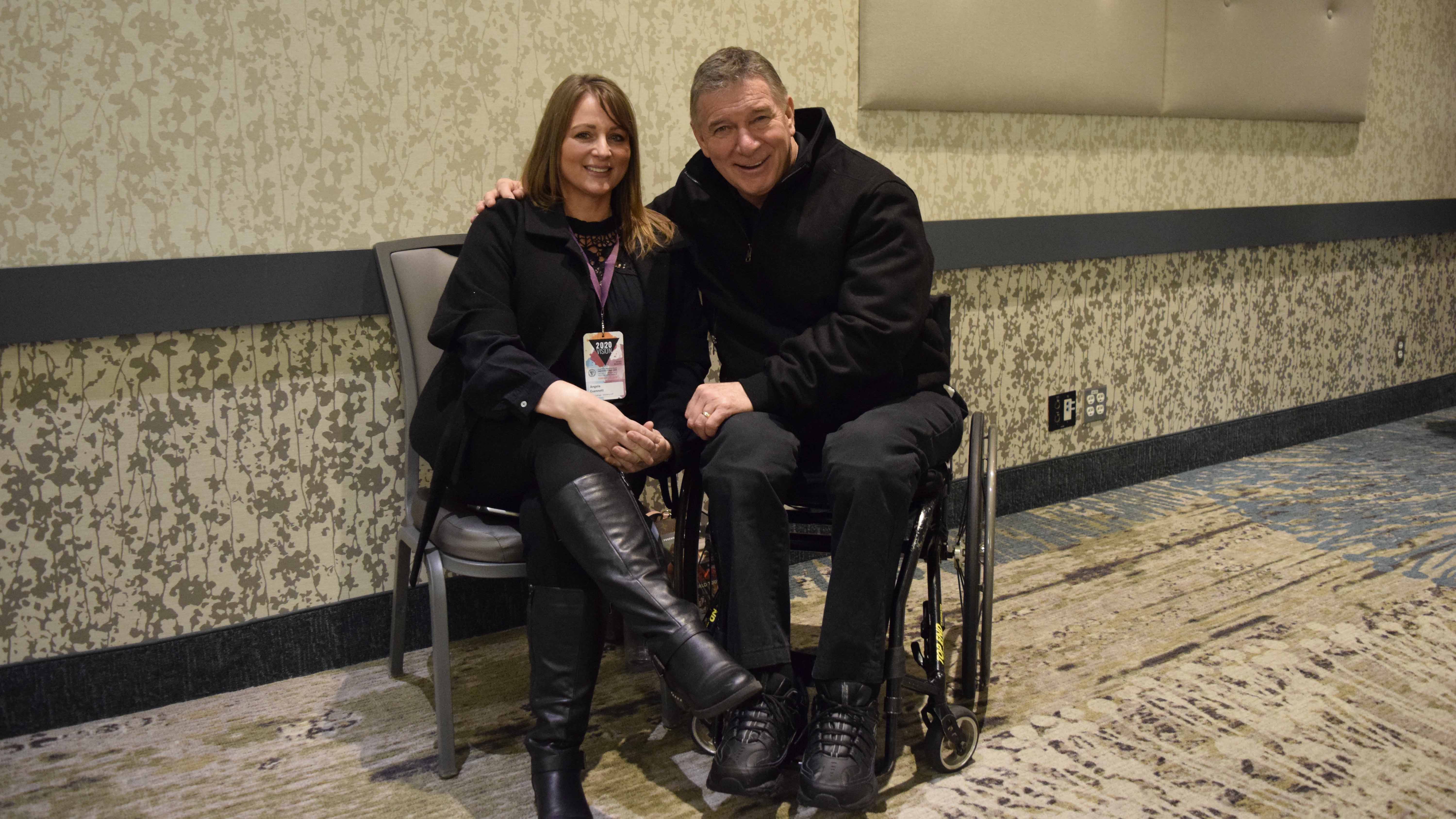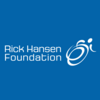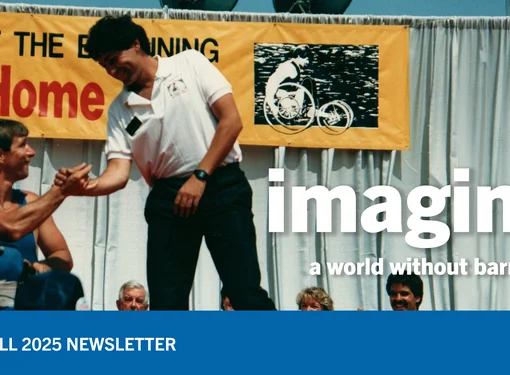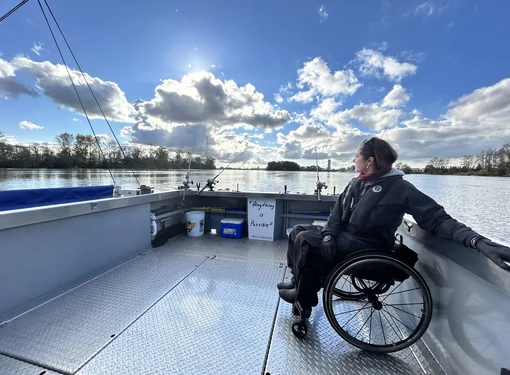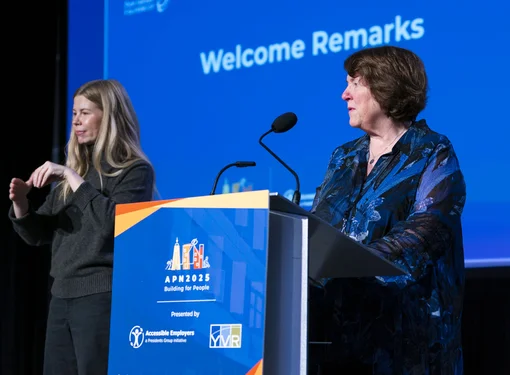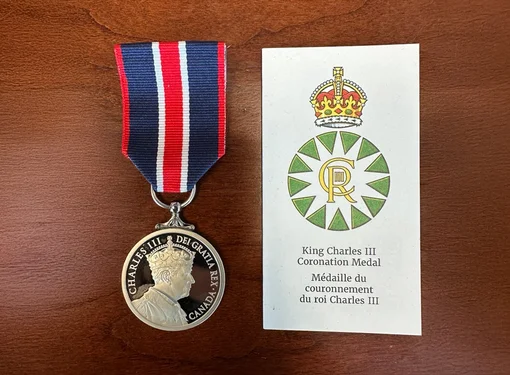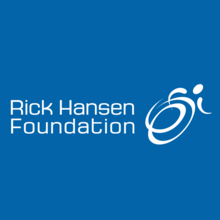Rick Hansen Foundation Spring/Summer 2020 Newsletter
The latest updates on the programs at the Rick Hansen Foundation for Spring and Summer 2020.
A Message from Doramy
As with many people and organizations around the world, the Rick Hansen Foundation has had to find inventive ways to pivot quickly due to the COVID-19 pandemic. These past months have presented unprecedented challenges for all of us. This can be particularly true for people with disabilities, who are disproportionately affected by additional barriers including fewer support workers, a lack of financial aid, and an increased risk of contracting the virus and developing severe illness.
In this issue of Imagine you’ll learn how the Foundation team is ensuring we continue to meet the needs of people with disabilities across the country.
We’re adapting our School Program resources to meet the new needs of educators and parents; our Accessibility Certification team continues to focus on removing barriers in the built environment; and the Foundation leadership team has been working with disability organizations on recommendations to the Government of Canada to ensure a cross-disability lens in their response to the COVID-19 crisis. Challenges still lay ahead, but I am confident in the Foundation’s ability to continue taking action to remove barriers for people with disabilities—especially when we have such a strong community of supporters behind us.
Thank you for your continued support. Enjoy your issue of Imagine and please stay healthy, safe, and connected.
Doramy Ehling
Chief Executive Officer
Rick Hansen Foundation
In This Issue
New At Home Educational Resources
Evergreen Independent School
35 Years of Removing Barriers!
Your Legacy
SCI Research on Ketogenic Diet
Meet RHF Donor Angela Evennett
Empowering Youth
Introducing Little Big Lessons!
It’s never been a more vital time to support our educators, parents, and youth, so we’ve adapted our School Program to make our Kindergarten to Grade 12 lessons and activities accessible to more people as we navigate education from home. Thanks to your support, we’ve launched Little Big Lessons.
These easy-to-use lessons engage youth on the big themes of accessibility, inclusion and the importance of being difference makers in our communities. Free, bilingual and aligned to provincial curriculum, Little Big Lessons are designed for both parents and educators to easily use as part of their online learning plans as we collectively adapt to new ways of engaging youth.
The RHF School Program continues to ensure all of our resources are accessible to students of all abilities. We encourage you to check them out for yourself and please feel free to share them with others you think will benefit from them.
Visit www.RickHansen.com/ LittleBigLessons to learn more and receive new lessons and activities to your inbox each week. (The lessons and activities which were a part of the Little Big Lessons campaign during the height of the Covid-19 pandemic have been updated and are now a part of our Resource Library. You can find these lessons and more here.)

Improving Access
BC Accessibility Grant Success Story: Evergreen Independent School
Evergreen Independent School, an elementary school located in the small Vancouver Island town of Cobble Hill, BC, is now able to offer an accessible washroom to students, staff, and visitors thanks to a BC Accessibility Grant. After receiving a Rick Hansen Foundation Accessibility Certification™ (RHFAC) rating, the school was eligible for the grant, thanks to support from the Government of BC. What resulted are improvements that have made an immediate difference in some students’ education experience.
When deciding which accessibility upgrades to make, the school consulted with families, caregivers, and community support providers of current students to maximize the impact of the grant.
Before the renovations, the accessible washroom was a cluttered storage space in one of Evergreen’s portables. Now, it’s a brand-new washroom with a toilet with secured tank and wall-mounted sink. The installation of an overhead lift and addition of a height-adjustable change table ensures that they can safely and more easily meet the specific needs of one student. Evergreen has four other students with different abilities who are also benefiting from this new space, and now have greater autonomy and privacy.
“As the year goes on and we invite community members into the school grounds, we will see greater numbers of people—parents, grandparents, and general community members - benefiting from the improvement,” says Elissa Barron, Evergreen’s Inclusive Education Coordinator.
Evergreen is looking forward to continuing to increase the washroom’s accessibility with features like an extended ramp and adding direct access through an exterior door.
“It is because of the Rick Hansen Foundation that we can now meet a student’s physical care needs, and that she is able to continue her education in a school where she is a happy, connected and a valued member of the community” – Evergreen’s Inclusive Education Coordinator Elissa Barron.
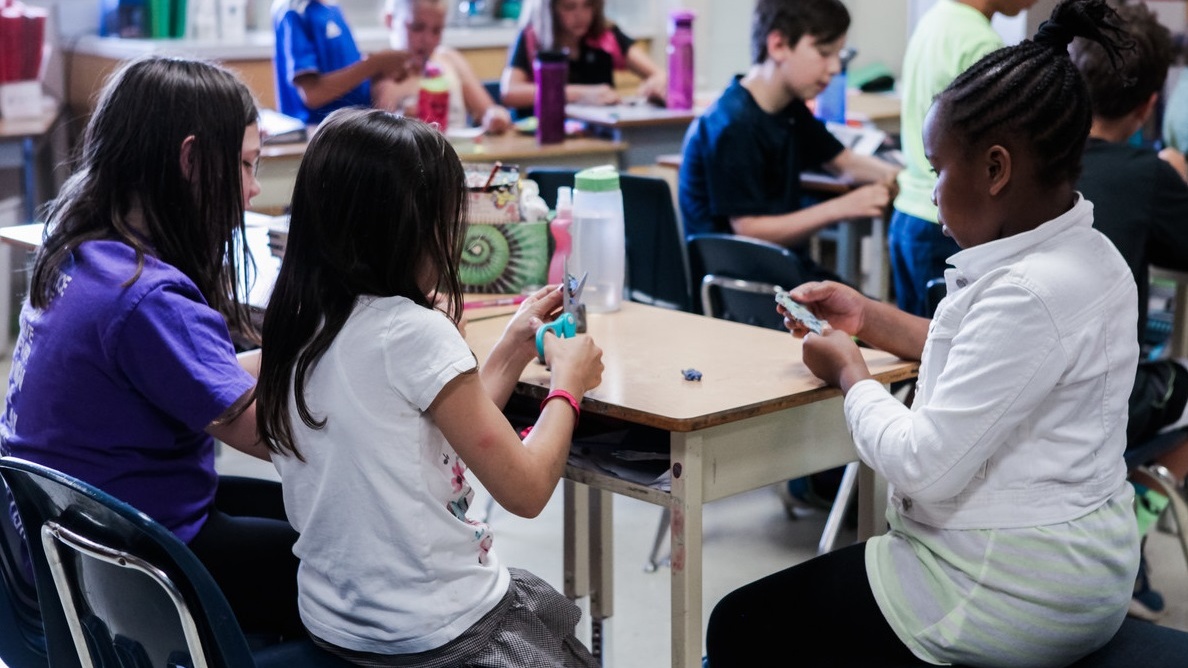
35 Years of Changing Attitudes and Removing Barriers
This March marked the 35th anniversary of the start of Rick Hansen’s Man In Motion World Tour (MIMWT). To celebrate, we’re remembering some key milestones that you helped the Foundation achieve.
March 21, 1985: Man In Motion World Tour begins with Rick Hansen setting out to wheel around the world with two big dreams: to prove the potential of people with disabilities, and to find a cure for paralysis.
May 22, 1987: Man In Motion World Tour ends in Vancouver BC, after 26 months, 40,000+ kms, and 34 countries. It raised over $26 million and was a catalyst for enormous change in the way people with disabilities were perceived.
1988: The Rick Hansen Foundation is established, dedicated to Rick’s goal of creating an inclusive, barrier-free world where people with disabilities are living to their full potential, as well as funding spinal cord injury (SCI) research and care.
1989: National Access Awareness Week is established, inspired by Rick’s Tour. It is now known as National AccessAbility Week, this week continues to promote inclusion and accessibility in our communities and workplaces across Canada.
2000: The RHF School Program is established, empowering elementary and secondary students to learn more about disability, accessibility, and inclusion.
2003: Wheels in Motion is launched across Canada, raising more than $11 million and supporting more than 900 Quality of Life improvement projects for people with disabilities. 2003: Rick Hansen Spinal Cord Registry is announced, the first and only Canadian database to collect and share standardized data from SCI patients.
2008: The Blusson Spinal Cord Centre opens, a fully accessible, state-of-the-art SCI research facility on the VGH campus created out of Rick’s vision. It was named in recognition of the generous support from Stewart and Marilyn Blusson, and co-funded by RHF and federal and provincial governments.
2012: The 25th Anniversary Relay takes place across Canada, recognizing 7,000 difference makers, and inspiring a new generation of accessibility champions.
2017: The RHF Access4All Canada 150 Signature Project, with support from the Government of Canada, granted $1.5 million to 55 Barrier Buster projects across Canada.
2017: Rick Hansen Foundation Accessibility Certification™ launches, helping organizations better understand their level of accessibility and areas for improvement. Thanks to support from the Province of BC, to-date, over 1,200 sites are rated for meaningful accessibility, and over $2M in accessibility infrastructure improvement grants awarded.
March 2020: 35th Anniversary of the start of the Man in Motion World Tour. May 2020: Rick donates his Tour collection to the Canadian Museum of History where it will be part of the National Collection, preserved for its significance to Canada. The collection can be seen here: https://www.historymuseum.ca/rickhansen/
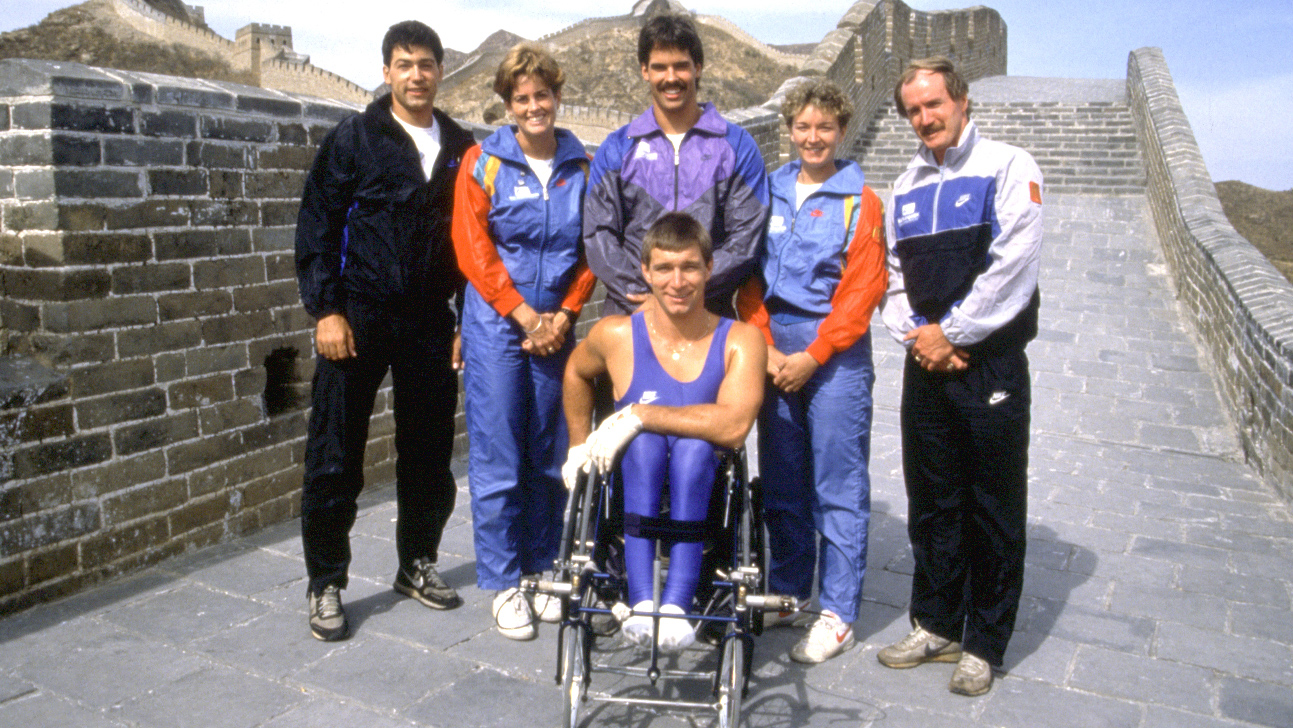
Have you Thought About your Legacy?
We asked our friends at Vancouver Foundation to discuss the meaning of “planned giving.” Planned giving is all about envisioning the legacy that you want to leave for future generations and putting a plan in place to achieve it. Start with the ‘why’. As someone who believes in the importance of accessibility and inclusion, you may want to leave a legacy that helps create a world without barriers for people with disabilities. Your gift in your will or estate plan will fund programs that remove barriers and support breakthroughs in spinal cord injury research for years to come.
Next comes the ‘how’. Most donors who plan a charitable legacy do so by including a gift in their will – which can be a specific amount or a percentage of your estate. Planned gifts can also be made by naming a charity as the beneficiary of a life insurance policy or a registered account. It is important to consult with your qualified financial or legal advisor. They can explain the tax benefits and make personalized recommendations for your unique financial situation.
Please consider the Rick Hansen Foundation when the time is right for you to plan your legacy. Planned gifts can be left directly to the Rick Hansen Foundation for immediate impact. Another option is to set up an endowment fund at Vancouver Foundation to benefit the Rick Hansen Foundation with steady, ongoing support.
For more information on these options, please contact Mike Reid at the Rick Hansen Foundation (mreid@rickhansen.com) or Rob Gagliano at Vancouver Foundation (rob.gagliano@ vancouverfoundation.ca).
Investigating the Ketogenic Diet as a Treatment for SCI
Dr. Wolfram Tetzlaff, director and researcher at ICORD (International Collaboration on Repair Discoveries), has been investigating whether following a ketogenic diet (a high-fat, lowcarbohydrate diet) can improve functional recovery after spinal cord injury (SCI). Tetzlaff lab researchers previously published a paper showing that rodents who followed a ketogenic diet were better able to use their forelimbs than rodents who were fed a carbohydrate-based diet. The data from this research has laid the foundation for a clinical trial of following a ketogenic diet after acute SCI at the University of Alabama in Birmingham.
“For now, this is the only location where this approach is being tested and we have to await the outcome from this trial to determine whether more people need to be trialed in other locations and whether this could be recommended as a standard of care,” said Dr. Tetzlaff. The Rick Hansen Foundation is looking forward to hearing the results of this clinical trial and are proud to support the extraordinary work happening every day at ICORD.
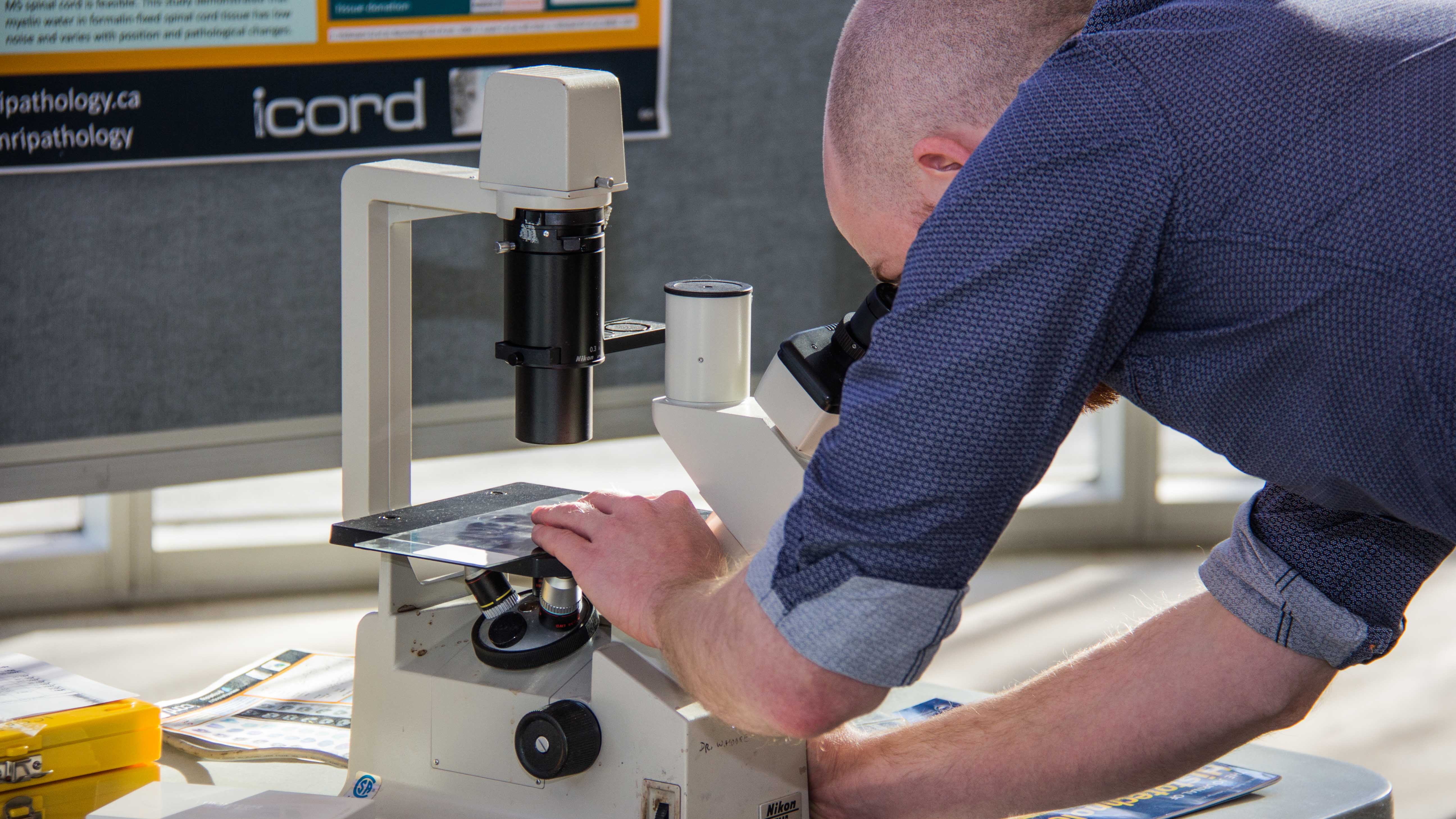
Meet Dedicated Donor Angela Evennett
Angela Evennett is a passionate realtor, and her track record proves it: she’s multi-award winning, recently nominated by her peers for Bridget Houghton Professional of the Year, and in the top two per cent of realtors in the Fraser Valley of British Columbia. Until recently, what many people might not have known about her is that she lives daily with physical challenges.
In 2017, Angela had back surgery. Complications during the surgery have left her with permanent damage, that, for a long time, she tried to hide. Like so many with similar conditions, she didn’t want anyone to think she couldn’t do her job. But she wondered: “How can we actually move forward and increase awareness of disabilities if we aren’t vocal about it?” So Angela made the decision to embody this change, sharing on her website how she suffered spinal cord damage.
The decision wasn’t taken lightly considering the stigma that persists for people with physical challenges. “There’s a belief that if someone has a disability they might not be as capable as someone else, but obviously that’s not true. It’s not true at all,” says Angela.
Instead of receiving negative feedback, clients have responded positively to her humanity. She’s had clients tell her how meaningful it is for them and share stories of loved ones with similar situations.
Angela is also proud to donate a portion of her commission to the Rick Hansen Foundation. The impact the Foundation is making in raising awareness about the potential of people with disabilities and supporting spinal cord injury research, hit home. Not only does Angela have a personal connection to the cause, but she truly believes in giving back.
“I feel that for those of us who are in a position to give, it’s important to do so. When I’ve got the ability to give, I feel ethically and morally that it’s just the right thing to do.” Angela’s generosity and openness to share her story is continuing to have a positive impact by inspiring others to give back. People Angela works alongside are taking notice of the difference she is making and have become inspired to give back to the community themselves.
Thank you, Angela!
